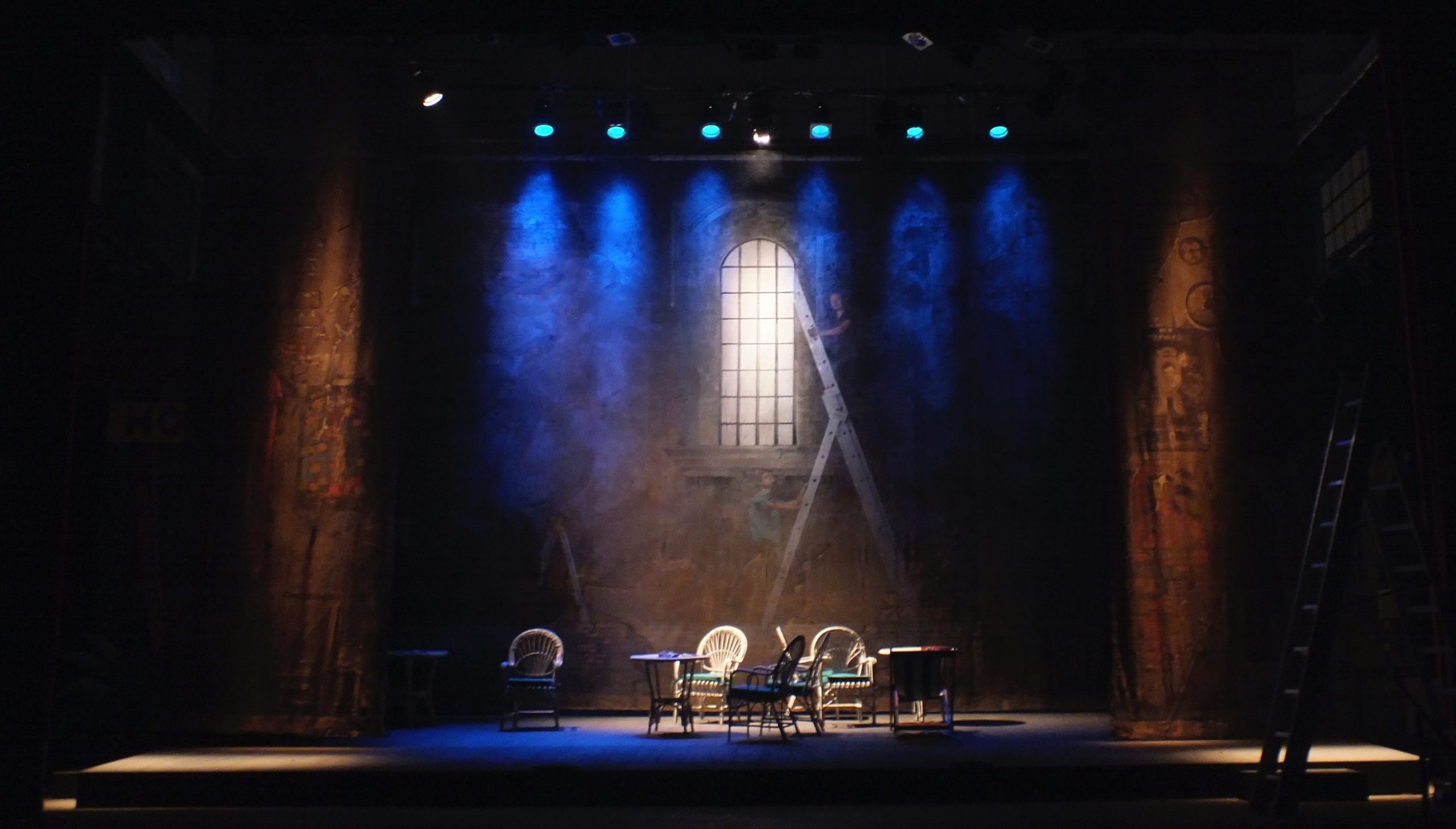Lit Mags
A Bigot by Any Other Name is Just as Dangerous
“Flor” by Natalia Borges Polesso, new fiction translated by Julia Sanches

AN INTRODUCTION BY JULIA SANCHES
When I first read Natalia Borges Polesso’s story “Flor” — or in Portuguese, “Flor, flores, ferro retorcido” — I’d never heard the word machorra before. The unfamiliarity of the word lent me an innocence similar to that of our eleven- or twelve-year-old unnamed protagonist. I considered finding an English equivalent for machorra, discussed it at length with my roommate at the time — after all, every language has its bigots. But in the end, I decided to preserve that first, fleeting sense of connection with narrrator’s perplexity, trusting readers would read between the lines.
Amora, the title of the collection from which this piece is taken, contains narratives that remain mostly absent from Brazilian literature. Stories of women loving women, wanting women, having their hearts broken by women, getting into confusing amorous entanglements with women. There is a single definition for amora in the Portuguese dictionary: the fruit of a blackberry or mulberry bush. A berry in other words. But here, amora appears rather as the female form of amor, or love, in all its multiple manifestations.
In the title story of the collection, a girl named Amora falls in love with a boy and then feels those same feelings for a girl; hers is a typical, teenage love story. In “Flor,” a young girl comes across something she doesn’t understand, and when the adults refuse to help her, sets out to discover it on her own; she is a typical, curious little girl. These stories are not out of the ordinary, and their power is precisely in their ordinariness. Amora and our protagonist here, they seem to say, are ready to accept a more generous view of love, and people, and the world, if only we let them.
The world presented in the pages of Amora holds a certain innocence that is not so much naïve as it is responsible, democratic; we were all, once, after all, as bright-eyed and inquisitive as the narrator, and we all have a right to both complicated and uncomplicated love stories. And the cool looseness, the colloquial cadence, the modernity of Natalia Borges Polesso’s prose makes it all the more concrete, fun, prosaic, and possible.
– Julia Sanches
Translator
A Bigot by Any Other Name is Just as Dangerous
Natalia Borges Polesso
Share article
“Flor”
by Natalia Borges Polesso, translated by Julia Sanches
Her hair spilled over her shoulders, and she was always in a hat and canvas shoes, which may have been why she reminded me a bit of Renato Borghetti, that folk singer with the accordion. Whenever I think of that time and of that place and try to remember people’s faces, or their voices, she’s the one I picture most clearly.
It was 1988, but thinking of it now, it seems like it could’ve been much earlier. Opposite my house stood Mr. Kuntz’s shop, with its dirt floor and exposed brick walls. That’s where I spent most afternoons, with Celoí, Mr. Kuntz’s daughter. Celoí’s mom had died in childbirth, which made them, Celoí and Mr. Kuntz, a very serious pair. I liked going there because it was right in front of my house and because Celoí had Xuxa’s latest album — the one with “Ilariê”, “Abecedário” and “Arco-íris” — and we’d dance to it in front of her dad’s store until six thirty at night, since we knew the transformer on the street always blew at seven. Seven p.m., without fail. The transformer probably couldn’t handle all the people watching telenovelas, taking showers, switching their radios on, using their blenders, and god knows what else, all at the same time, so it’d start crackling and sparking until boom! For a few hours, no one had electricity and it was like we lived in a far-flung Amazonian village. There were no sidewalks and the cobblestones in the street were totally uneven, which cost all us kids plenty of toenails since that’s where we learned to play soccer and to bike, and where we would dance to the latest hits. Not bad for a modest neighborhood on the border of Campo Bom and Novo Hamburgo.
Our house sat between two garages: the Klein family’s — a dad, a mom and their little daughter, all blond with alarmingly blue eyes, whose names I can’t really remember — and on the other side, the one run by the most striking figure of my childhood, a woman whose face I saw only once, but never forgot. Both garages had a decent enough clientele, but there was a sort of tension between the two shops that seeped through the walls of our house from both sides.
My parents were friends with the Klein family so we often had lunch together on weekends. My brother and I would play with their daughter, who was my brother’s age, I think — it’s all a bit of a blur. What’s stuck with me most from those gatherings is a phrase I once heard said: how could a machorra like that do such a thing? And curious kid that I was, I immediately asked: What’s a machorra? Total silence. Followed by my mom who started laughing really weirdly, clearly embarrassed. The men scratched their heads and stared into their beers. The Klein mom was so horrified to hear that word come out of my mouth that she started laughing, too. Mom tried to salvage the situation. Cachorra, like a dog, she said, cachorra. But I was sure I’d heard machorra, so I insisted, but they just changed the subject and ignored me. Except they weren’t expecting me to hang off their every word, to prick up my ears until they found their way back to that subject. So I stayed quiet and eavesdropped while feigning interest in a doll, my attention focused entirely on them. That’s when I understood that they were talking about our other neighbor. She was the machorra.
The next day, I was leaning over the wall, trying to catch a glimpse of her when I heard the crunching of her canvas shoes getting closer and stretched myself further over the wall… And fell. She ran over to help me and I remember hearing her voice, just like a fairy’s, asking if I was all right, if I was hurt. Mom ran out of the house, lifted me by the wrists and dragged me back to our patio. I heard a thank you from Mom and a you’re welcome from our neighbor followed by the sound of someone sucking on a cuia. I turned to Mom and asked her why our neighbor was a machorra. The slurping stopped abruptly. Mom’s face turned bright red as she dragged me into the house and asked me where I’d heard that word. Yesterday, at lunch, I said. The canvas shoes crackled over the hard earth as they rushed toward the garage. Mom leaned against the sink, both hands over her face, and sighed in a way that sounded terribly worried. I just stood there, wiping the dirt off my elbows and making sure the rest of me was fine, too; I’d fallen off a wall, after all, and my mom, strangely, seemed totally unconcerned. Honey, you can’t say those kinds of things to people. What kind of things and what kind of people was she talking about, I asked — I honestly couldn’t remember — and she answered with a pinch on the shoulder. My shoulder wasn’t hurt, but my feelings sure were, so I went to my room to cry. Between sobs, I tried to think of what a machorra could possibly be, and why it had offended our neighbor and upset mom so much. I made up my mind to ask again. It’s a sickness, honey. The neighbor’s sick. I went back to my room, nearly satisfied with her response. If it was a sickness, why hadn’t they just said so? I kept wondering whether it was contagious, but decided it couldn’t be. The garage was always busy, after all. I went back to the kitchen. Mom, what kind of sickness? My mom raised her hand to her face again and took a deep breath. It’s from the rusty metal they keep in the junk yard. I didn’t know you could get sick from metal, but felt satisfied with her response when, the next day, our teacher explained tetanus to the class.
The following morning, I did what anyone would do for a neighbor who’s sick, or at least what I thought, in my kid-brain, anyone would do: I took her flowers. I’d seen it on TV. I picked some of the flowers that grew around my house, real wildflowers, a couple of yellow ones and a bunch of daisies, then walked over to the mechanic’s — real early so no one would see me — and left the flowers at her door, in a glass of water. I also left a little note wishing she’d get well soon and asking her to please put the flowers in a vase and return the glass because my mom would probably notice it was missing. At noon, on my way home, I saw that the flowers were gone and smiled, happy she’d taken them. I walked into my house feeling cheerful, with a spring in my step, but as soon as I saw my mom’s face and the glass that had held the flowers in her hand, and her voice asking what had gotten into me, my mood was shattered. I explained to her that if the neighbor really had a case of machorra, whatever it was, someone had to go over there and wish her a speedy recovery. Which is what I did. My mom gave me a big hug and said I was such a good girl, which was why I shouldn’t play near the garage anymore. I asked which one and she said the neighbor’s. Then I asked her if I could still go play at Mr. Klein’s. Yes, she said, so I went out to see Celoí — I didn’t want to play in either shop anyway.
Celoí put Xuxa on and we danced between bags of beans and stacks of red floor wax. I remembered then that my mom was always buying that wax but our floor wasn’t red and I didn’t quite understand why, but just as I was about to ask Celoí about the wax, the neighbor walked in. I stopped dancing and stood there, petrified. My first thought was that when a person’s sick they should stay in bed, so I asked her: Are you feeling better, ma’am? She turned to me, her wet hair over her face and, with pink, pink lips and kind, honey-colored eyes, said she’d never been better. She thanked me for the flowers and kneeled to give me a kiss. Just then, my mom showed up and dragged me out by the hair. As we left, I heard Celoí’s dad saying Don’t worry about it, Flor.
Flor, her name was Flor. And she really looked like a flower, too. Actually, her whole name was Florlinda, lovely flower. I asked Celoí about it the next day, and told her about the sickness. Celoí rolled her eyes the way people do when they’re accusing someone of being naïve, said nothing, took me by the hand and into her room, then grabbed a teddy bear and two Barbies. OK, so they weren’t real Barbies, they were knock-offs, but they were affordable and they worked just fine for what she was trying to explain. I was eight years old and Celoí was eleven or twelve. She took one of the dolls and the teddy bear and began her explanation. This is a man and this is a woman, when they both love each other, they go into their bedroom and then they go like this — she put one toy on top of the other — your mom and dad do this and that’s why you exist, and why your brother does, too. I nodded, trying to follow her demonstration. Then, she took the two dolls and did the same thing and said: Some people do this instead. That’s machorra, but my dad said it isn’t nice to say that.
Mr. Kuntz was a quiet man, but he knew how to take care of people. He and Flor were friends. I’d often seen them sipping chimarrão together in her backyard or in front of his shop. I thought they were in love, so I asked Celoí about it. She slapped me and, annoyed, asked if I hadn’t understood what she’d just explained to me with the dolls. But the fact was a doll’s a doll, a bear’s a bear, and a machorra’s a machorra. Celoí tried again: OK, let’s see, What do you like more, dolls or cars? Well, it depends on the car and on the doll. Celoí rolled her eyes like she had before. What do you like more, dancing to Xuxa or playing tag? I didn’t know how to answer that, either, because everything depended, really, and I was having trouble understanding what she was getting at. OK, do you like the color pink or the color blue? I like green. For God’s sake, this is your last chance. Who do you like more, me or Claudinho? Claudinho was a boy who lived on our street; Celoí thought he was cute. You, of course, I said. Then you’re a machorra, she said, impatient.
I went home that day with my head hanging low and, as I crossed the street, ran right into Flor, who was standing between our gate and the electricity meter. Why the long face, sweetie? Because Celoí thinks I’m sick, too, that I’ve got what you have. I dragged my sneakers along the gravel. She bent over and put her hand on my forehead, as if I had the flu and she was trying to take my temperature. Don’t be silly, there’s nothing wrong with you. You’re doing just great. I looked up at her to see if she looked like she was telling me the truth. She brushed her hair away from her face and, just then, the transformer blew. The sparks lit up her eyes and, in that moment, she was the prettiest flower I’d ever seen.








